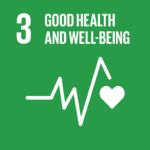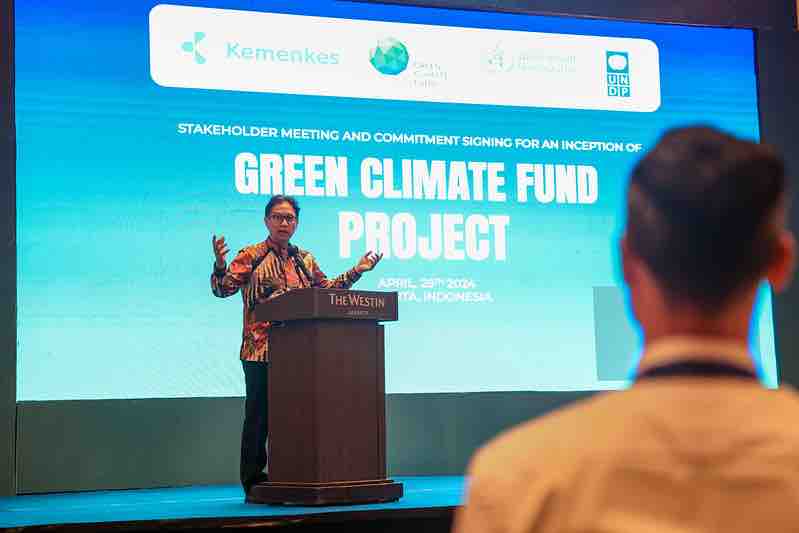The project’s adaptation component focuses on enhancing early warning systems for climate-related diseases, integrating these into the health system to better predict and respond to health threats
The Indonesian Ministry of Health (Kemenkes), in collaboration with the United Nations Development Programme (UNDP) and the World Health Organization (WHO), has launched a groundbreaking initiative funded by the Green Climate Fund (GCF). This project, part of a broader GCF initiative spanning 17 countries, aims to fortify Indonesia’s healthcare system against the ravages of climate change through innovative adaptation and mitigation strategies.
RELEVANT SUSTAINABLE GOALS



Adaptive Measures and Climate Resilience
The project’s adaptation component focuses on enhancing early warning systems for climate-related diseases, integrating these into the health system to better predict and respond to health threats. Mitigation efforts will concentrate on reducing greenhouse gas emissions from healthcare facilities, aligning with Indonesia’s commitments to environmental sustainability.
The Indonesian Ministry of Health (Kemenkes), in collaboration with the United Nations Development Programme (UNDP) and the World Health Organization (WHO), has launched a groundbreaking initiative funded by the Green Climate Fund (GCF). This project, part of a broader GCF initiative spanning 17 countries, aims to fortify Indonesia’s healthcare system against the ravages of climate change through innovative adaptation and mitigation strategies.
Each participating country tailors the project to fit its unique environmental and societal contexts, ensuring that the strategies implemented are locally relevant and effective. In Indonesia, the initiative seeks to develop a national healthcare system that is both climate-resilient and sustainable, aiming to reduce greenhouse gas emissions from the health sector and enhance funding for transformative actions against climate health risks.
Broad Impacts on Public Health and Policy
This initiative promises to make Indonesia’s health system more resilient to climate impacts, promoting a sustainable, low-carbon healthcare model. Health Minister Budi Gunadi Sadikin emphasized the significant health impacts of climate change, particularly regarding communicable and non-communicable diseases. “We must be prepared,” he stated, advocating for preemptive screenings of animals frequently interacting with humans to better manage potential outbreaks and reduce treatment costs.
The collaboration with global institutions like UNDP and WHO is crucial, acting as a catalyst to draw further global engagement. Sujala Pant, Officer in Charge of UNDP Indonesia, remarked on the intertwined nature of climate change issues, highlighting the organization’s commitment to integrating climate considerations across all areas of work.
Dr. N. Paranietharan, the WHO Representative for Indonesia, reiterated the severe health threats posed by climate change and the importance of responsive measures. “This initiative marks a bold step forward for Indonesia, which is particularly vulnerable to the health impacts of climate change, and will accelerate progress towards a healthier, greener, and more resilient future for all,” he stated.
A Collaborative Effort for a Sustainable and Inclusive Healthcare Future
The project will involve extensive collaboration with key stakeholders, including the Ministry of Environment and Forestry, to align the project’s goals with Indonesia’s comprehensive national development strategies. The Ministry of Finance will also play a pivotal role as the designated national authority for the Green Climate Fund, approving the specific GCF project proposal for Indonesia.
This unified effort by Kemenkes, UNDP, and WHO exemplifies the broad cooperation required to mitigate the health impacts of climate change effectively and advance towards the Sustainable Development Goals and universal health coverage. Through this project, Indonesia is setting a precedent for proactive climate action in the healthcare sector, aiming to safeguard and enhance health outcomes for its most vulnerable populations.
Lead image courtesy of Markus Spiske from Pexels
You may also be interested in :
Heat Exposure’s Heavy Toll : India Loses 191 Billion Labor Hours in 2022 Alone, Lancet Highlights



